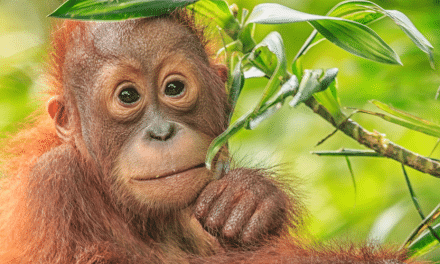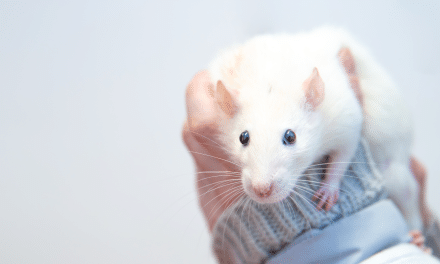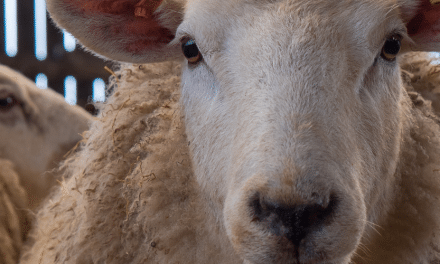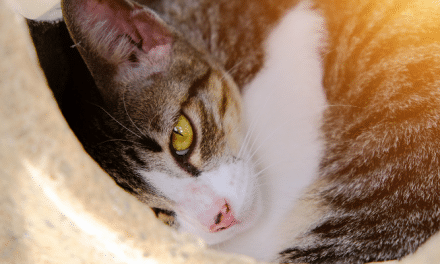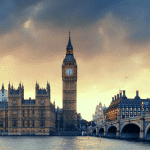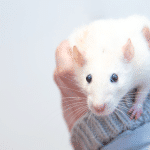By Hollie Bates, Caseworker at Freedom Law Clinic
In the USA, the legal status of animals is currently being challenged by The Nonhuman Rights Project (NhRP),i whose landmark legal case seeks to free a female Asian elephant named Happy from a solitary zoo enclosure. The New York Court of Appeals heard oral arguments on May 18 as this case continues after a loss in the lower courts. The legal team is arguing that the writ of habeas corpus, a legal protection that can currently only be used on behalf of a person, can be used to secure Happy’s release from the zoo, in recognition of Happy’s legal personhood. The team then wishes to rehome her to a sanctuary. The decision is expected in the next month.
In 2005, Happy became the first elephant to pass a mirror self-recognition test, believed to denote self-awareness, but she remains at Bronx Zoo, alone in a small enclosure where she has lived since being taken from the wild in the 1970s.ii If NhRP’s case is successful, not only will Happy be granted some form of legal rights, but the decision would have ramifications across animal law.iii
With the case of Happy gaining attention in the USA, a reconsideration of the strength of UK zoo legislation seems timely. The UK often boasts of having some of the best animal welfare legislation in the world, but without proper enforcement it may be worthless. In the UK, there are currently more than 300 licensed zoos in operation, with many of these exhibiting elephants, the world’s largest land mammal. Zoos in the UK are governed by the Zoo Licensing Act 1981, as well as the Secretary of State’s Standards of Modern Zoo Practice, which sets out rules concerning the captive environment of zoo animals. The Act aims to ensure that animals have a “suitable environment to provide an opportunity to express most normal behaviour.”iv
Enforcing the conditions of the Act is the responsibility of the local authorities, and relies on regular and thorough inspections. However, it is recorded that 70% of local authorities with zoos were regularly missing inspections, and 24% of inspected zoos were not complying with conditions.v Time spent inspecting zoos is minimal and the ‘yes/no’ box ticking process is deemed superficial. In short, the legislation may seem strong, but if inspections are not correctly and thoroughly performed, the Act is tokenistic at best.
Concerning the specifics of the Act: it states that zoos are required to undertake conservation measures and promote public education and awareness.vi Activists argue that “the vast majority of animals kept in zoos are not endangered or threatened and are there simply to provide public entertainment,”vii with ex-situ management contributing little.
The Secretary of State’s Standards of Modern Zoo Practiceviii focuses more on specific requirements for zoo animals, with Appendix 8 containing the needs of elephants, and recognising that “meeting their needs in captivity is challenging” (8.8.5). It acknowledges that “appropriate social grouping is key,” (8.8.8) since wild elephants usually live in large herds of up to 100. Despite this guidance, zoo elephants are often kept in insufficient numbers that fail to constitute the kinship groups that their wild counterparts form, depriving them of building the complex social relationships that would enable normal behaviour. The provision also states that outdoor enclosures must have a minimum shared space of 3000 square metres throughout the year,ix and indoor provisions a paltry 300 square metres.x With elephants travelling up to 50 miles a day in the wild, this is incredibly inadequate.
Perhaps the appropriate question to ask is not how to improve conditions for elephants in zoos, but if it is ever possible for sentient beings to thrive in captivity. The recent Royal Assent to three important animal protection regulations included the Animals (Penalty Notices) Act 2020, which sets fines of up to £5000 for those who fail to properly care for animals in zoos. But considering that depressing treatment of animals like Happy is widely considered ‘proper’ and up to zoo standards, the new law does not give us much hope. It is not surprising that such socially intelligent animals suffer greatly in the zoo environment. Investigations by Born Free have “confirmed repeatedly that many zoos do not provide their animals with conditions that meet their physical, environmental, social and psychological needs.”xi If the welfare of elephants in UK zoos cannot be improved, it may be that phasing them out of the captive environment or rewilding is necessary. In July 2021, the Aspinall Foundation announced that it would be releasing a herd of 13 elephants from Howletts Wild Animal Park, to the Kenyan bush.xii If the rewilding is successful, there is hope that elephants in captivity all over the world can be returned to their ancestral homelands.
Concerning Happy, the lower courts seem to agree that she should be moved to a sanctuary, but that personhood cannot be granted to her because the ramifications of the decision are unknown. Irrespective of this case, the UK can and should do everything in its power to ensure that the elephants under its care do not suffer the same fate as elephants like Happy. In practice, The Zoo Licencing Act 1981 is not working, and in reality, may be unworkable. It fails to achieve its aim, and it is increasingly difficult to see how it ever could.
i The Nonhuman Rights Project https://www.nonhumanrights.org/
ii Bridges, A. (2006) ‘Mirror test suggests elephants are self-aware’ October 31st Available at https://www.nbcnews.com/id/wbna15487308 [Accessed 28/1/2022]
iii For more on the NhRP case, please visit https://www.nonhumanrights.org/client-happy/
iv Section 1.1 (Available at https://assets.publishing.service.gov.uk/government/uploads/system/
uploads/attachment_data/file/69595/zoo-licensing-act-guide.pdf (Accessed 12/2/2022)
v Draper, C. and Harris, S. (2012) ‘The assessment of animal welfare in British zoos by government-appointment inspectors.’ Available at https://cyberleninka.org/article/n/494902 (Accessed 16/2/2022)
vi This is specified in S1A of the Act (s1a(a) and (s1a(b) specifically) as well as at 7.2 and 7.8 of the Secretary of State’s Standards of Modern Zoo Practice.
vii Threadgill, S. (2020) ‘Is it time to shut down the zoos?’ The Guardian. [Online] 2nd February. Available from: https://www.theguardian.com/world/2020/feb/02/zoos-time-shut-down-conservation-education-wild-animals [Accessed 31/1/2022]
viii Appendix 8: Section 8.8 (2017) Available at https://www.gov.uk/government/publications/secretary-of-state-s-standards-of-modern-zoo-practice [Accessed 29/1/2022)
ix Ibid (footnote 4)
x https://www.bva.co.uk/media/4485/standards-of-modern-zoo-practice-for-great-britain.pdf
xi ‘Zoos and Aquaria: Global’ Available at: https://www.bornfree.org.uk/global-zoos [Accessed 31/1/2022]
xii ‘The next phase of world-first elephant rewilding project’ (21st December 2021) https://www.aspinallfoundation.org/howletts/news/the-next-phase-of-world-first-elephant-rewilding-project/ [Accessed 31/1/2022]


